
Nityanand Jayaraman, a Chennai-based writer and social activist, prepared the following manifesto at the behest of a few political parties in Tamil Nadu. The Wire Science is publishing it in full below, without edits (except for style) or comments.
Political philosophy: Environmental Sustainability + Social Justice + Intergenerational Equity
The policy will ensure that environmental and health consequences of “development,” environmental degradation, environmental restoration and environmental protection will not disproportionately burden the poor, the marginalised, other life-forms and future generations. Rather all interventions will be designed to tangibly improve their quality of life. Social and monetary costs of development, environmental restoration or environmental protection will be borne by the sections of society who can afford to absorb such costs, while benefits of such intervention will be designed to flow from bottom up.
Principles of environmental governance
Jobs and livelihoods: Creation of new jobs will not entail the displacement or degradation of traditional and natural resource-based livelihoods. Job creation will be supplementary and in addition to existing livelihoods, and will lead to improvement in standard and quality of living for all, without impoverishing certain communities.
Sustainable livelihoods: Nature based livelihoods – such as agriculture and fisheries, and value-addition to the same – will be the targets of investment (money, training, infrastructure and market development) with a view to creating new and healthy livelihoods, attracting more people to these sectors, improving quality of livelihoods, and reducing the sectors’ environmental footprint by introducing sustainable practices.
Transparent, science-based and participatory decision-making: Informed public participation will be facilitated and decision-making processes will be transparent and science-based with expertise, including traditional expertise, drawn from institutions and communities.
Capacity building and public accountability of law enforcers: Public officials vested with enforcing laws that have a bearing on the environment – such as from local bodies, Pollution Control Board, district administration, Forest Department – are lacking in capacity, autonomy and accountability. Investments will be made to build capacity and develop accountability mechanisms.
Climate resilience
The state’s development plans will reflect the changed realities of a climate uncertain future by ensuring that development plans and activities enhance the natural resilience of local areas to climate-induced weather extremes.
Health in all policies in decision-making: Every geography, sector, and level of government should be critically evaluated with the lens of health in all policies, “an approach to public policies across sectors that systematically takes into account the health implications of decisions, seeks synergies, and avoids harmful health impacts in order to improve population health and health equity,” as defined by the WHO.
Industrial development as if the future mattered: Tamil Nadu will lead the country in mindful industrialisation that enhances quality of life at the bottom of the pyramid without disrupting existing livelihoods, harming the environment or compromising the rights of other living beings or future generations.
MoEFCC Plus: The Union environment ministry is increasingly misusing its mandate and diluting environmental norms in the name of ease of doing business. Tamil Nadu will enact state-level regulations to ensure the ease of safeguarding environment even while facilitating legitimate businesses.
The Manifesto
1. Ennore-Manali Industrial Cluster

Background: Stretching across North Chennai from Manali to Ennore, this region has the highest concentration of hazardous industries in Tamil Nadu. Thirty-four large ‘red category’ industries, the city’s largest garbage dump, three coal-fired power plants, coal stackyards, coal-ash dumps and three ports are all located in this densely populated working-class region.
The fact that areas such as Manali, Kodungaiyur, Chinna Sekkadu, Athipattu and Minjur have higher than average proportion of Scheduled Caste and MBC populations highlights the discriminatory nature of industrialisation. A recent study by Chennai Climate Action Group of six large industries in the region by analysing RTI data of emissions from their chimney stacks found that none of the industries was compliant with air emission norms; that dangerous Bhopal-like gases like hydrogen fluoride that ought to be monitored continuously were not being monitored for more than 60% of the time; that TNPCB had failed to take any action to enforce the law.
Announcements
* No further industrialisation in Ennore-Manali
* A time-bound action plan to bring air, water quality and health to healthy levels.
* Strict action against industries operating in violation of the law.
* Increase Tamil Nadu Pollution Control Board (TNPCB) staff strength to ensure prompt action, and improve mechanisms to hold TNPCB accountable.
2. Ennore-Pulicat Climate Sanctuary
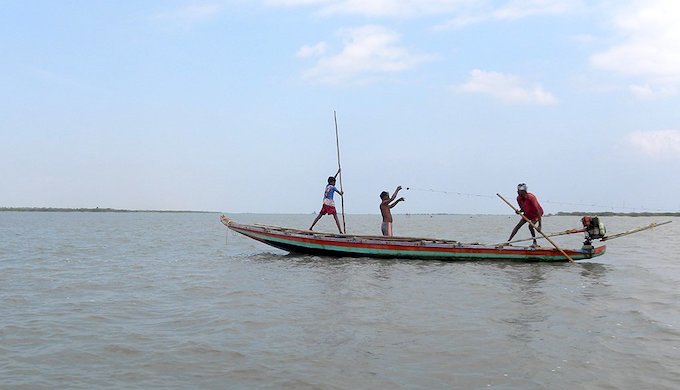
Background: The Ennore-Pulicat wetlands together with the Kattupalli island on the east offer a natural protection against several environmental dangers – sea-level rise, salinity intrusion, tidal surges and flooding. More than 1,500 acres of the wetlands have been lost to industrial encroachers. Plans are afoot to divert an additional 2,000 acres to accommodate plastics and chemical industries inside the wetlands. A thousand acres are degraded due to coal ash spillage from TANGEDCO’s power plant.
Chennai Rivers Restoration Trust (CRRT) has prepared an ambition-less proposal for restoration of Ennore Creek that excludes large portions of the wetlands from the purview the restoration plan conceding the demands of companies that propose to encroach these areas.
Announcements
* CRRT’s proposal for Ennore Creek restoration will be reframed to ensure that the full extent of Ennore wetlands is restored and protected and that no further encroachments are permitted in the wetlands.
* The overall extent of the wetlands will be marked and a comprehensive restoration plan will be developed along with local communities.
* The wetlands and the Kattupalli Islands will be restored and declared India’s first Climate Sanctuary with a special emphasis on development through value-addition of artisanal fisheries, agriculture and horticulture and low-impact tourism. Such a move will protect and improve the livelihoods of more than 10,000 fisher and farm families in the Ennore-Pulicat region even while creating the natural infrastructure to absorb climate shocks.
3. Sterlite’s legacy issues in Thoothukudi
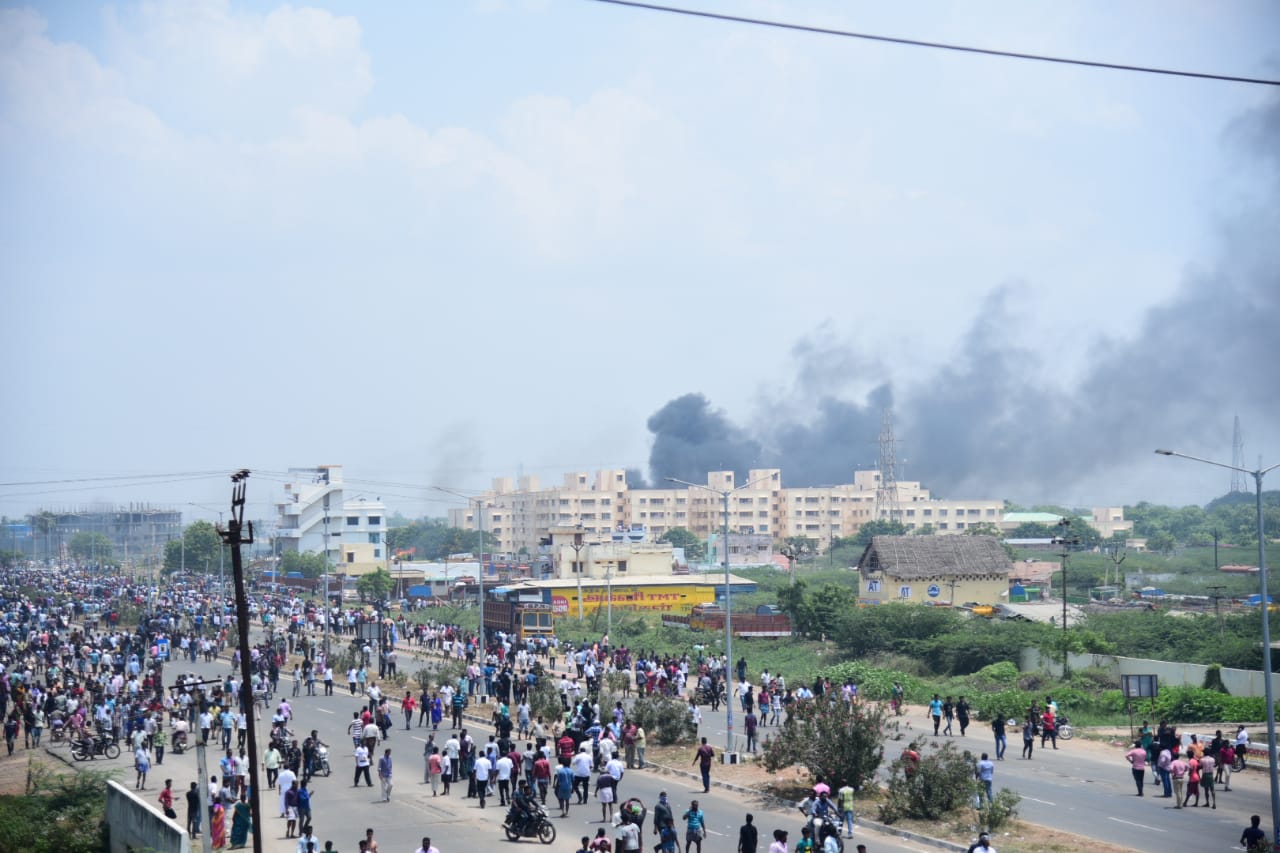
* A suitable decision will be taken to ensure that Vedanta’s Sterlite copper smelter will not reopen in Thoothukudi.
* Sites contaminated by Sterlite’s illegal wastes dumping will be mapped and cleaned up at the polluters’ cost.
* The company and its management will be prosecuted for offences under the Water Act, Air Act and Environmental Protection Act.
* A comprehensive health study will be undertaken and special medical assistance will be extended to Sterlite-affected communities.
* All operating industries and thermal power plants will be monitored for compliance with environmental laws, and action, including punitive action, will be taken against companies that are in violation of laws with a view to make them compliant.
4. No to Adani Port expansion in Kattupalli

Background: Adani Ports has proposed to reclaim 2000 acres from the sea, and an additional 1500 acres of coastal wetlands. This will lead to erosion on the north of the Kattupalli Island which will result in the merger of Pulicat lagoon with the Bay of Bengal.
Announcement
* Adani Port’s expansion will not be permitted and fisher livelihoods will be protected.
5. Long-term housing plan for fishers

Background: CRZ Notification 2011 requires state governments to develop long-term housing plans for fisherfolk as part of the Coastal Zone Management Plan. This has not been done much to the disappointment of Tamil Nadu’s fisherfolk.
Announcement
* A long-term housing plan for fishers along Tamil Nadu’s coast will be developed in consultation with individual villages in a time-bound manner accommodating for sea level rise.
6. Vedanthangal Wildlife Sanctuary

Background: In March 2020, the Government submitted a proposal to denotify significant portions of the Vedanthangal Wildlife Sanctuary.
Announcement
* The proposal to denotify sections of the Vedanthangal Wildlife Sanctuary will be withdrawn.
* A Wildlife Action Plan will be implemented to better manage the sanctuary through judicious land-use interventions. Special attention will be given to nurture the agriculture-wetland mosaic and enhance local economy through promotion of organic agriculture and low-impact tourism.
Also read: Why Does Tamil Nadu Wish to Denotify Part of the Vedanthangal Bird Sanctuary?
7. Kodaikanal mercury clean-up
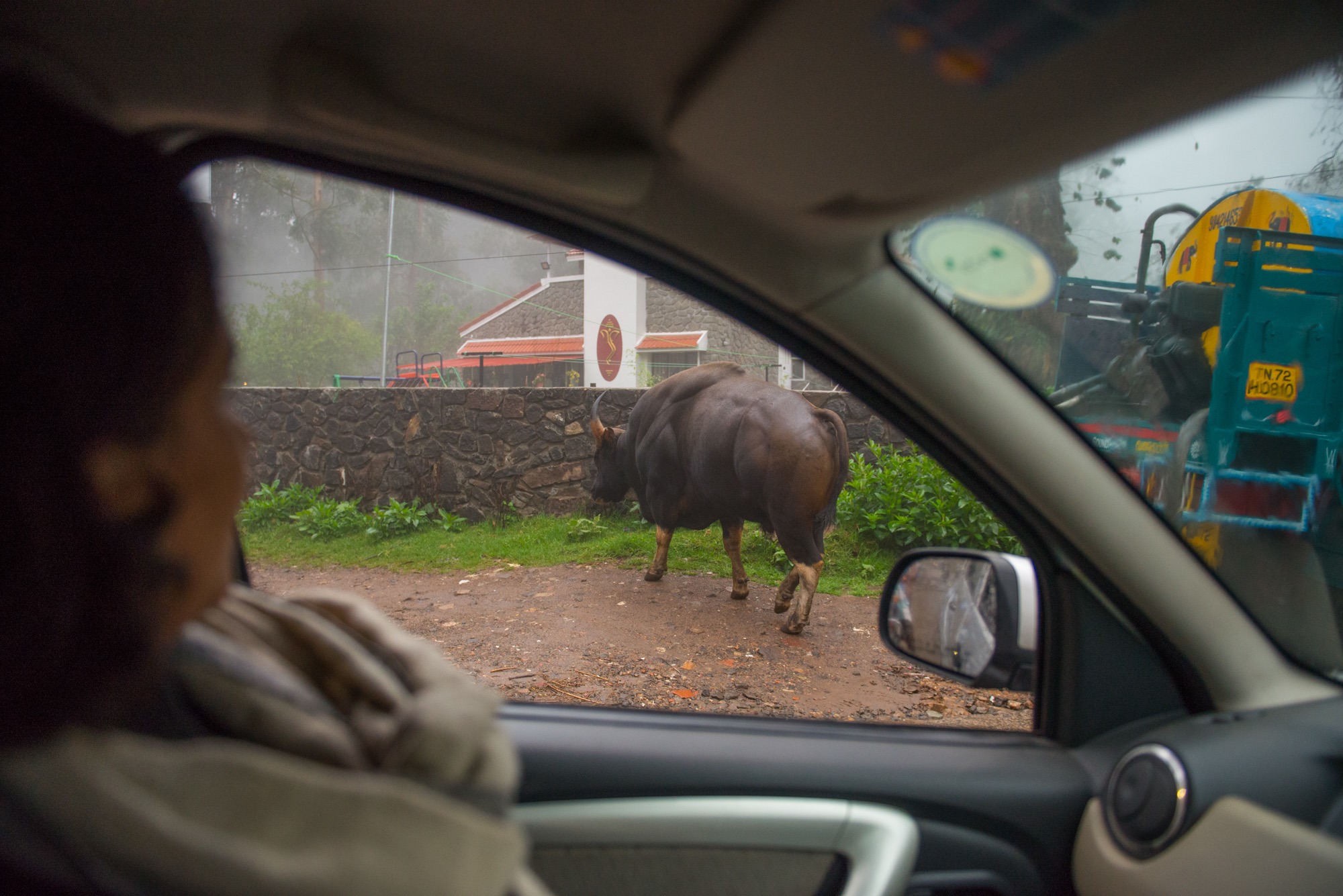
Background: Hindustan Unilever’s mercury contaminated site sits atop the Pambar Shola forests in Kodaikanal Wildlife Sanctuary. These forests are part of River Vaigai’s catchment. World-class clean-up of the mercury contaminated site is essential to safeguard the Kodaikanal Wildlife Sanctuary, and ensure that downstream areas are not affected by mercury leaking from an improperly cleaned site.
The state and central governments have permitted Unilever to carry out a sub-standard remediation program for their mercury contaminated factory site in Kodaikanal. Soil remediation standards are 20 times less stringent than what would be permitted in United Kingdom, where Unilever has a headquarters. This reflects double standards and environmental discrimination. The actual remediation work has not yet begun.
Announcement
* The site remediation standards and protocols for Unilever’s mercury-contaminated factory site will be brought to par with international standards and best practices in consultation with scientific experts.
8. EIA Notification 2020
Announcement
In the event that EIA Notification 2020 is passed in its current form, state-level legislation will be enacted to ensure that:
a) Projects mentioned in Schedule to EIA Notification 2006 and other such projects that are seen to have a significant impact on environment and livelihoods are subject to a rigorous EIA process and public consultation;
b) EIA reports will be prepared by independent, third-party consultants engaged by a public authority identified by the government, and not by the project proponent.
c) projects are defined as of “strategic importance” only with the concurrence of the state government, and even such projects will be subject to environmental due diligence including public consultation without compromising sensitive information.
d) environmental due diligence is time-bound with sufficient time for consultation and decision-making, keeping in mind the interests of host communities and project promoters.
e) health impact assessments constitute an integral part of EIAs for Scheduled activities in Tamil Nadu.
f) proposed development activities enhance the resilience of local areas to climate-change-induced extreme weather events and do not make them more vulnerable.
g) Tamil translations of any rules made on the issue will be widely publicised.
9. Coastal Regulation Zone Notification 2011 and approved Coastal Zone Management Plan

Background: The Government of Tamil Nadu failed to prepare a coastal zone management plan as per Coastal Regulation Zone Notification until 2018. The plan as prepared is not in line with the guidelines given the CRZ Notification 2011. It compromises the interests of fisherfolk and exposes coastal communities to seaborne natural disasters.
The Madras High Court has directed the Government of Tamil Nadu to ensure that the CZMP is in line with the guidelines in the notification.
Announcement
Interests of fisherfolk and coastal residents will be safeguarded by bringing the CZMP in line with the law. Specifically, the plan will:
a) include a long-term housing plan within the coastal region for fisherfolk as per CRZ 2011.
b) identify authorised and unauthorised structures as per the original approved CZMP prepared under CRZ Notification 1991 as per CRZ 2011.
c) identify and map coastal commons and areas under traditional and customary use of fisherfolk as per CRZ 2011
d) including fisher representatives in district level coastal zone management committees.
e) map out important fishing zones and extend protection to fisher livelihoods in such zones.
10. Baseline information
Background: Robust baseline information is a must for science-based decision making.
Announcement
The following sets of baseline data will be readied by commissioning new studies where data is not available, and collating data from existing official sources where it is available:
* Carbon emission sources and quantum of emissions by source
* Atlas of environmentally stressed areas – pollution-impacted areas, areas with poor hygiene infrastructure
* Natural carbon sinks: atlas of vegetative cover by type (grassland, mangroves, seagrass, natural forests, plantations, scrub, etc.)
* Wetlands and drainage courses
* Groundwater atlas
* Atlas of industrial areas and lands available as part of land banks
* Atlas of unused, unusable lands (to be developed in consultation with public) for use for solar installations
11. Biodiversity baseline
Background: As per the Biological Diversity Act, local bodies are required to prepare local-level people’s biodiversity registers that document the region’s floral and faunal diversity, including traditional varieties of cultivars, cattle or other livestock. Such registers are to be developed through a participatory exercise and endorsed by the local body. Tamil Nadu claims to have completed such registers in more than 13,000 local bodies, despite the fact that local body elections were only held earlier this year.
Announcement
* Panchayat or local-body level biodiversity management committees will be set up, and people’s biodiversity registers will be developed by people throughout Tamil Nadu.
12. Energy and climate change

a) Climate change
* A trans-disciplinary task force drawing from the best expertise available nationwide will be set up to prepare landscape-level ‘Ain Thinai’ climate adaptation plans in consultation with local communities aimed at nurturing resilience and adaptation practices through wise land-use, and redesigning economic practices.
(Note: “Ain Thinai is part of Tamil literary convention that codifies emotions and behaviour against the backdrop of five landscapes: kurunji (mountains), paalai (arid lands), mullai (forests and pasture), neithal (coast) and marutham (agricultural lands/plains). Each thinai is associated with a specific landscape and the flora, fauna, topography and deity appropriate to the landscape.)
* Tamil Nadu Public Health Act, 1939, will be suitably amended and updated to provide a health-based framework for regulating environmental pollution and responding to the climate-induced challenges.
b) Air quality
* Bring Chennai under National Clean Air Program with a focused city-level action plan to control air pollution and mitigate health impact.
* Clean-air action plans will be implemented for tier I and tier II cities, and all pollution pollution hotspots in the state to bring air quality down in a phased manner. Low-cost air quality monitors will be deployed in partnership with citizen groups and private parties for generating hyperlocal data.
* Tamil Nadu Municipalities Act and individual corporation Acts will be suitably amended to empower the health officers and health hierarchy with increased decision-making and regulatory powers to address air pollution.
Public transportation
* Increase the number and frequency of ‘ordinary’ buses (renewable Energy-powered electric vehicles) in tier I and II cities.
* Reduce ticket fare
c) Heat action plans
Background: A number of cities/states have begun to develop heat action plans to respond to heat waves that are particularly dangerous for working class and lower-income group communities.
Announcement
* Considering that heat stress and humidity is high in several parts of Tamil Nadu, and that such stress affects working class and lower income group communities disproportionately, heat action plans will be developed for implementation by district authorities and local bodies. Such plans will include reactive actions such as paid work holidays, drinking water points, suitable facilities at homeless shelters, and proactive actions for developing vegetative cover and “urban oases” in every ward of local bodies.
d) Solar and wind power
Background: Large utility scale solar projects like the 648MW Adani Green project in Kamuthi, Ramanathapuram, divert large areas (more than 2500 acres) of lands used by the poorest people for grazing goats and cattle. Promotion of solar installations by domestic, commercial and industrial consumers is seen as counterproductive as it would divert high-tariff paying cross-subsidising customers from contributing to TANGEDCO’s revenue.
Wind power potential in Tamil Nadu is large, and wind turbines have a lower per MW land footprint than solar, and a higher electricity generated per MW capacity than solar.
Announcements
* A policy will be announced for promotion of small-scale, decentralised solar production, including rooftop solar, for decentralised local consumption.
* Wind power, where possible in hybrid with solar, will be promoted in eligible wind generation areas.
* The Maharashtra model of solar powered agricultural pump sets will be promoted where a cluster of farms will set up decentralised solar parks to run solar pumps. Such a scheme should only be developed on condition that farmers will switch to water-efficient crops and farming practices so as to ensure that groundwater is used sustainably.
* Grid scale solar will be promoted only in areas identified to be unused and unusable for other purposes, including abandoned coal ash ponds, and closed garbage dumps or on government buildings. Grid scale solar projects will be carried out after detailed EIA and social impact analyses and public hearing to ensure that vulnerable sections are not adversely affected.
e) Healthy Jobs
Background: Job generation is a crying need in the post-COVID-19 world. Renewable energy (RE) and activities that enhance climate resilience are labour-intensive and have immense potential of job creation unlike the highly automated conventional energy and manufacturing sectors. Tamil Nadu will pave the way for an environmental sustainable and socially just transition by creating 100,000 ‘healthy livelihoods in sunrise sectors’.
Announcement
* Healthy livelihoods in sunrise sectors: Urban gardening, rooftop solar, RE installation and maintenance, rainwater harvesting, restoration of waterbodies and wetlands, resource recovery from household and commercial discards, alternatives to single-use plastics are just a few of the labour-intensive sectors requiring skilled workers. At least 100,000 new livelihoods in sunrise sectors by executing a plan involving skills development, markets creation, credit assistance and entrepreneur development support.
f) Coal power
* No more new coal-fired thermal power generation projects in Tamil Nadu.
* Closure of ageing thermal power plants after their design life of 25-30 years, instead of retrofitting with expensive pollution control and water conservation infrastructure to meet new emission norms.
* Projects like Uppur Thermal, Udangudi Thermal and Ennore Thermal that have not progressed far and are embroiled in legal challenges will be abandoned, and electricity supply will be enhanced by increasing the capacity of renewable energy generation and improving the abysmally low plant-load factors of existing power plants.
* All existing power plants to meet new emission and water use norms by December 2021.
g) Energy use: reduction and efficiency
* All government offices will be retro-designed to reduce electricity and energy consumption.
* All government offices to phase in use of decentralised, renewable electricity.
h) Nuclear power
* Kudankulam units 1 and 2 have suffered frequent shutdowns, and have not contributed to Tamil Nadu’s electricity needs. A white paper will be published on the performance of units 1 and 2.
* No further expansion of nuclear power in Tamil Nadu: Locating six units (6*1,000 MW) in Kudankulam, in close proximity to densely populated areas, like Nagercoil (2.25 lakh population), is a recipe for disaster. Emphasis will be on maximising production from existing units, and new units will not be allowed to be set up. Units 3-6 will not be allowed to set up in Kudankulam.
12. Water and wetlands

a) Groundwater
* A comprehensive and stringent groundwater regulation that will ensure local government involvement in science-based licensing and rational pricing will be enacted to safeguard the interests of local communities, farmers and future generations.
b) Wetlands
* Implementation of Wetland Rules 2017: The Wetland Rules will be implemented in a time-bound manner as a matter of priority. Given that Tamil Nadu’s 1000 km coastline is vulnerable to sea level rise and extreme weather events induced by climate change, tidal influenced water bodies such as Kovalam estuary will be identified for priority protection as community-managed wetlands with due consideration to wetland-based livelihoods.
* Declaration of Ramsar wetland sites of international significance: Wetlands, including Pulicat lagoon, Kaluveli tank-Yedayanthittu estuary and Theroor-Manakudy wetlands, that fulfil Ramsar Convention criteria will be nominated and notified as Wetlands of International Importance under the provisions of Ramsar Convention.
* Protection, restoration and maintenance of all wetlands: State-level legislation will be formulated for the ecological protection of wetlands and waterbodies, including eri, thangal and kanmai that are not part of the Wetland Rules. Tank restoration has been a total fiasco with money wasted on contractors and work limited to improper, unscientific desilting.
* Eri and kanmai, particularly those with significant hydrological and historical importance, will be identified and declared a ‘cultural heritage’ of Tamil Nadu and a special task force will be appointed to develop watershed-level restoration plans for key bioregions.
* Restoration of waterbodies and irrigation tanks will be done holistically and scientifically by delineating catchments, water channels and courses and contours. Restoration works will be conducted under the supervision of local bodies, with audits and accountability mechanisms in place.
13. Industrialisation and pollution hotspots

Background: Industrial pollution is concentrated in certain regions, and local communities – often belonging to marginalised sections of society – are disproportionately burdened by the pollution. This is a case of environmental discrimination.
Announcements
* Pollution hotspots, like Gummidipoondi, SIPCOT Cuddalore, Mettur, Kayalpattinam, etc., will be identified scientifically.
* Local area environment committees, involving local community activists, TNPCB and district administration, will be set up in such hotspots to monitor industrial compliance and ensure law enforcement by TNPCB.
* Industrial atlas and regional planning: A statewide atlas will be developed for industrial siting in line with siting criteria for industries developed by the CPCB. Such plans will be publicised and public comments sought before finalisation.
* Masterplans will be drawn up for all parts of Tamil Nadu, with public consultation, with areas identified for different categories of industries in line with sound siting criteria.
14. Agriculture

* A state-level mission for promotion of organic, natural and low-input agriculture will be created aimed at small farmers and local markets.
* Millets and organic produce will be included in PDS to expand markets for such eco-friendly produce.
* Farm-to-plate Mission will be announced to enhance household income through small- and household-scale organic, free range poultry business.
* Promote value addition – small-scale mills for oilseeds, grains and cereal.
* Climate-sensitive agriculture: With a view to boosting farm incomes, even while reducing the sector’s vulnerability and contributions to climate change, a Public-Public mission involving experts from among farmers, and institutional scientists will be constituted to prepare a plan for revolutionising Tamil Nadu’s agriculture and reducing its climate footprint.
15. Cauvery delta
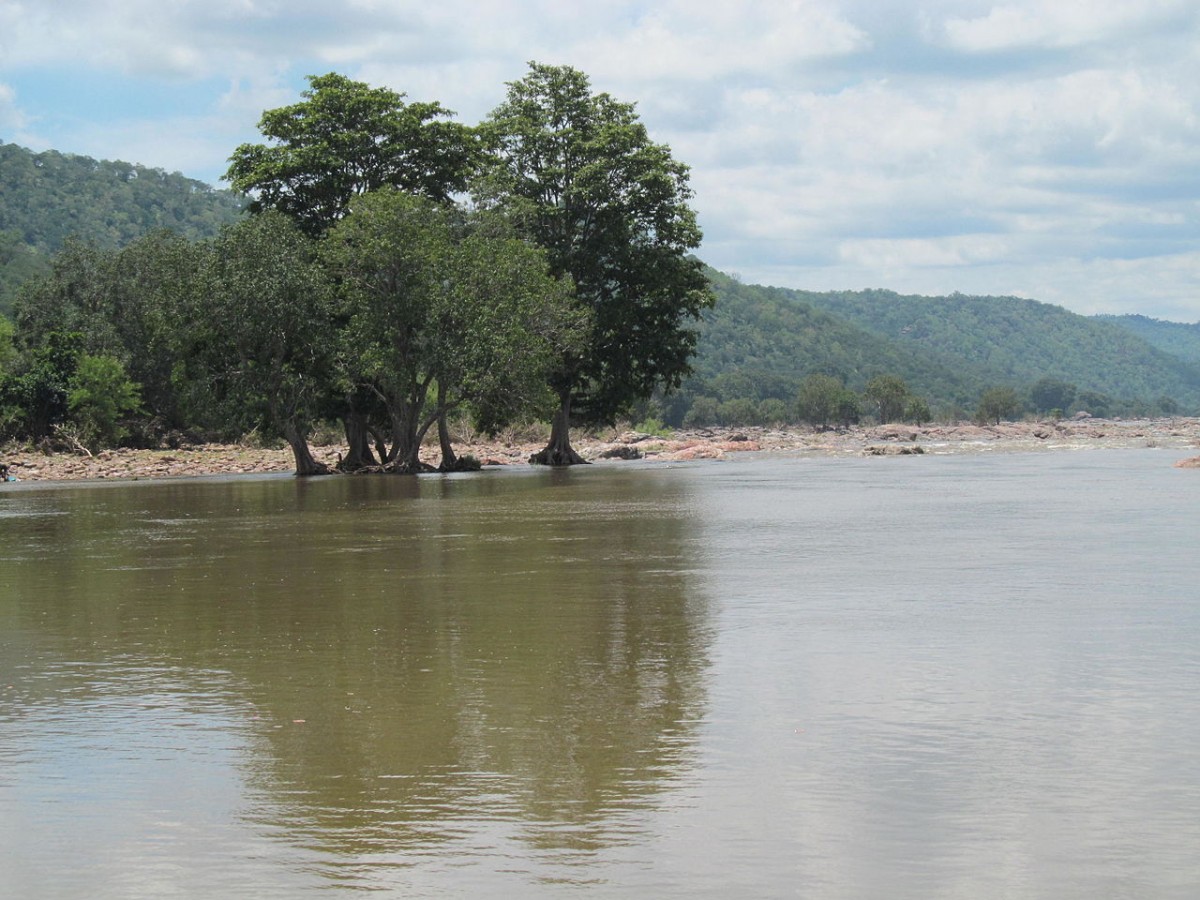
Background: Central government has approved the development of hydrocarbon reserves over 4000 sq km of offshore area in Cauvery delta, including in the ecologically sensitive Palk Bay and Gulf of Mannar. This will not only damage the marine environment and harm fisher livelihoods, it will also make a mockery of the so-called “special agricultural zone” as all the extracted oil/gas will be brought to land by pipeline and transported to processing facilities inside the delta.
Announcements
* A truly protective law will be enacted to protect the onshore and offshore natural resources of the Cauvery delta and to prohibit the exploration, extraction or processing of hydrocarbons in this region.
* Cauvery delta special agricultural zone plan will be unveiled with special schemes to promote water-efficient, natural/organic agriculture, labour-intensive value-addition and access to markets and fair prices.
Also read: But Why Is the Cauvery Calling?
16. Solid waste management (SWM)
* Ensuring maximum decentralisation of SWM
* Enforcing ban on single-use plastics by facilitating production of non-plastic alternatives by household industries and women self-help groups.
* 100% door to door collection of waste across the state which generates employment
* Acknowledge contribution of waste pickers and bring them under social security net by providing ID cards, insurance and health benefits.
* Announcing a zero-waste vision 2025 with no landfills and no incineration policy.
* Maximising diversion of organic waste towards composting and biogas thus eliminating the emission of methane, which is a potent greenhouse gas (methane is 25-times more potent than carbon dioxide and landfills are the number-one emitters of methane).
* Providing subsidies to businesses investing in sustainable SWM technologies like compost and energy generation from biogas.
* No state subsidies for incineration projects.
* MSP to compost from organic waste processing facilities.
* Tax concession for residents’ welfare associations and individual houses that adopt in-situ composting and biogas
17. Governance
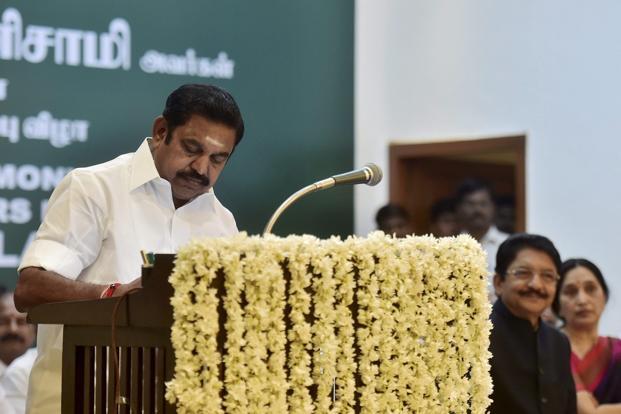
Promoting autonomy, capacity and authority with accountability.
Environmental law enforcement
* Filling vacancies: All vacancies in TNPCB will be filled.
* Independence and autonomy: To ensure independence and autonomy, the practice of appointing IAS/IFS officials or retired government officials to the post of Chairperson will be stopped. Suitable candidates from civil society or academia will be selected and appointed for the full term under law.
* Accountability: A state-level law will be enacted to allow citizens to hold accountable errant law enforcing officials from TNPCB, forest department and coastal zone management authority that allow, facilitate or ignore the violation of environmental and forest laws.
Zero tolerance to violations of prior licensing requirements:
* Establishments and factories that are operating or setting up without valid consents and/or clearances under Air/Water Acts and the Environment (Protection) Act 1986 will face stringent action.
* A transparent, time-bound mechanism will be set up to investigate citizen complaints and enforce law accordingly.
* Prosecution of environmental offenders: Environmental offences are prosecutable crimes, and TNPCB is legally required to prosecute offenders to establish a credible deterrent. But offenders are seldom prosecuted because of limited legal capacity in TNPCB. This will be repaired by:
* Appointing district level legal officers to pursue prosecution at the chief judicial magistrate (CJM) level.
* Building capacity and orienting CJMs across the state on environmental law and handling of offences.
18. Decentralised decision-making
Background: Tamil Nadu’s Panchayats Act is weak and places no faith on the ability of gram sabha and panchayats to govern. A strong panchayat/local body, with adequate representation for women, is a must for environmental governance.
Announcement
* The various local bodies Acts will be suitably amended to enhance the decision-making power of gram sabha, ward committees and their equivalents in urban local bodies.
* The amended laws will allow local bodies to take significant decisions, particularly on matters related to development activities, groundwater management, biodiversity conservation, disaster preparedness and management and eco-restoration.
Nityanand Jayaraman
Chennai Solidarity Group

